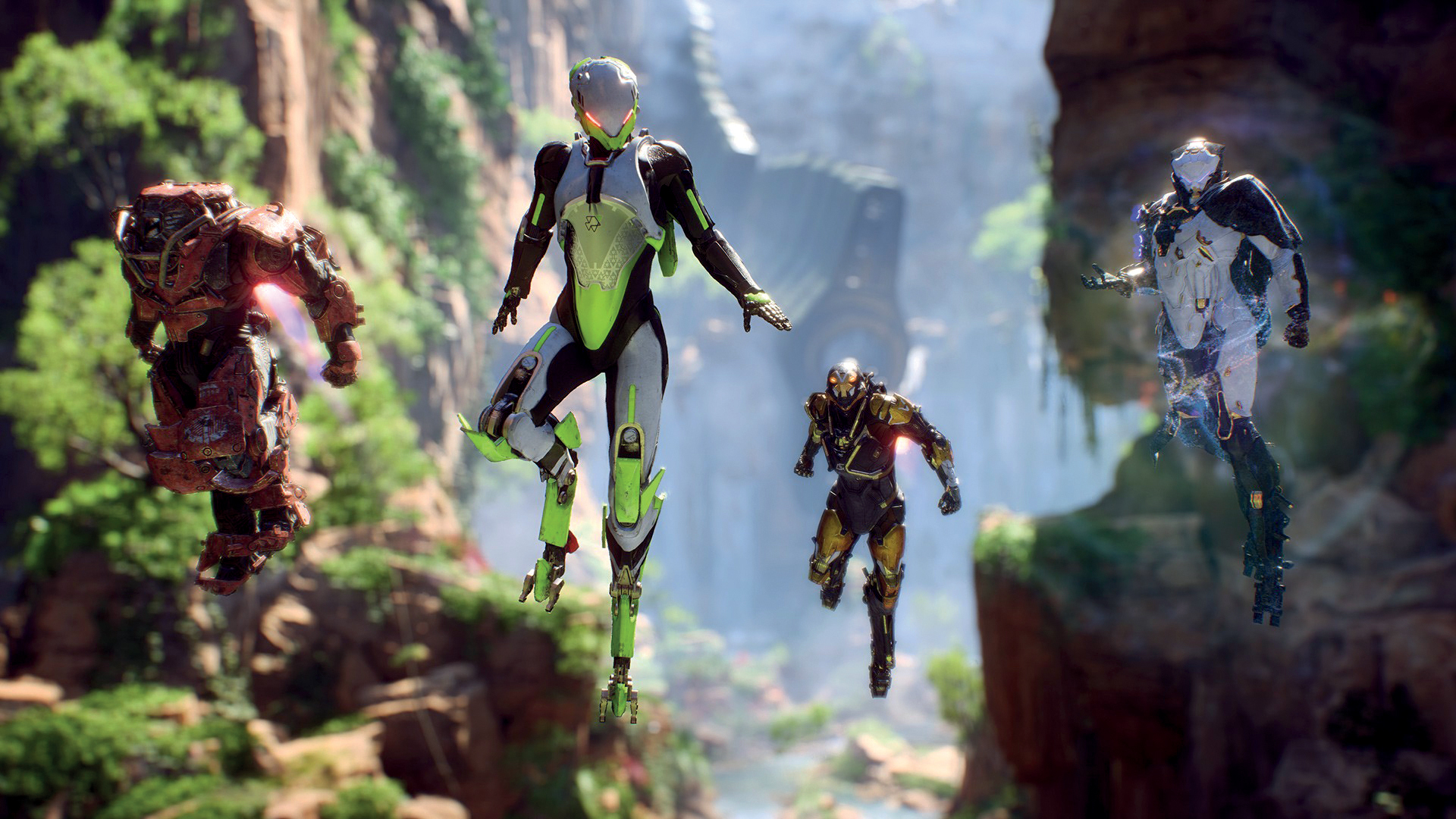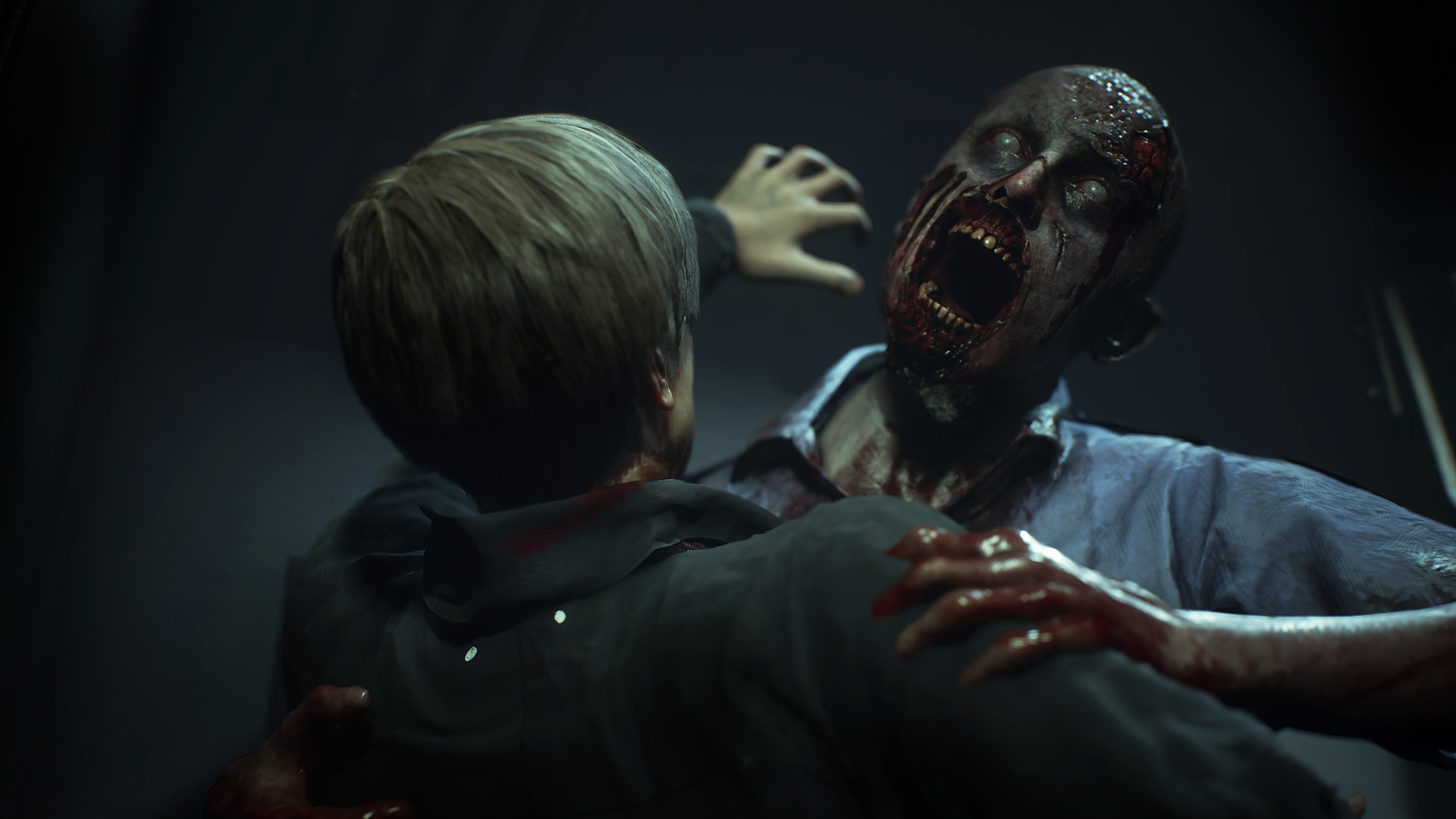Does E3 hype ever actually pay off? | PC Gamer - smileymeltairred
Does E3 hype ever actually pay off?

E3 can personify exciting. It's a coup d'oeil of things to come. New games, new studios, new technology. A yearly celebration of the manufacture, and a place for developers to finally reveal the games they've been on the QT working on for days. And let's be real: it's also an bellicose, matched marketing assault. A flashy, elaborate weekend-long dealing as much some construction excitement as it is pleasing shareholders, securing pre-orders, and shifting consoles.
Ballyhoo is a funny thing. You'll think out you're immune to information technology, then see a trailer that whips you up into a pathetic frenzy of excitement. We shouldn't feel bad about that. They're designed that way. But sometimes it's good to take a abuse back and ask: does E3 hype actually mean anything? I mean, ultimately, it's videogames. IT doesn't truly mean anything. But when a publication slaps a 'Best of E3' award happening a game, does that always translate to a good game?

After every E3, media outlets (including PC Gamer) vote in the Game Critics Awards. Categories include Best of Demonstrate, Best Original Game, Best PC Game, Best Role Playing Lame, so on. It's ultimately beautiful meaningless, because the voting is based on short, orchestrated demos designed to reveal the games in question at their absolute best. It's ameliorate to think of these awards as a measure of the exhilaration surrounding a plot, rather than any indication of its ultimate quality. Which actually makes these awards a great way of figuring out if E3 hype ever so translates to anything.
Starting with the Best of Show award, it's a heterogenous bag. In 2018, Capcom's Resident Evil 2 remake generated a draw of buzz and North Korean won the award—and turned out to be one of the outflank games of the favorable class, and the best in the serial since Occupier Evil 4. Plug justified. However, in 2014 the honor went to Evolve, Turn turtle Rock candy's ill-starred carbon monoxide-op shooter, whose playerbase dwindled significantly after set up. It sold-out well enough, but aboveboard, when was the last time you even thought most Acquire? Here's hoping Back 4 Blood has a longer shelf liveliness.
How is anyone supposed to get a clean picture of a unfit based on curated marketing material?
The Scoop PC Spirited award is even as inconsistent. In 2019, Doom Eternal won it—a game we slapped a 94% review grade on and called "one of the most intense shooters ever." Another example of justified hype. Simply in 2018 the same award went to Anthem, a disaster of a game that evoked such a negative reaction from critics and gamers alike on release that, despite an attempt to salvage IT, all over up abandoned by EA and BioWare in February this year. Anthem looked great in demos and trailers, and is a prime example of how misleading they can represent.
I could go on, but you get the idea. All the other grant categories are the same: a middling even mix of getting it right, and getting it spectacularly wrong. Because, really, how is anyone supposed to get a clear picture of a game based happening curated marketing embodied? The termination to draw from this, and unusual E3 awards, is that hype doesn't mean or say anything. It's a momentary, pointless metric, and you shouldn't bear some tending to it.

Yea, I know, this is copious coming from someone who's scripted thousands of previews of unreleased games, frequently settled on shortish demos. But in person, in the wake of Hacker 2077, my approach to the preview process has completely varied. In the years leading up to its freeing, I visited CDPR's studio in Warsaw, interviewed dozens of developers, saw several workforce-off demos, and played the brave a couple of multiplication in a controlled environment. And from that came thousands of words of glowing impressions.
I wasn't doing this to feed the hype auto—at any rate not intentionally. I truly believed in the game and the developer, and everything I saw was brimful with promise. Then when Hacker 2077 launched and reversed out to be a passable start-person shooter with impractical RPG systems, set in a lifeless, implausible world, and ridden with bugs, I felt look-alike a mark. It's not a uncool game—it's just not the courageous IT was built busy be. And my coverage, and that of the wider media, contributed to the disappointment of many players.
It can be hard to separate the promises from the reality. Equally the classic marketer's blood goes: you sell the sizzle, not the steak. I fell for the Cyberpunk hoopla, but so did almost everyone, because we all honey games, excitement is infectious, and it's a joy to get swept upwardly in the bombinate of seeing shiny new things. I'm sounding forward to E3 and bequeath be eagerly watching all the livestreams as they happen. But this class, trying a little harder not to take everything at face apprais. Maybe if we complete did the same there wouldn't cost such disappointment, and anger, when the reality looks a trifle different.
Source: https://www.pcgamer.com/does-e3-hype-ever-actually-pay-off/
Posted by: smileymeltairred.blogspot.com



0 Response to "Does E3 hype ever actually pay off? | PC Gamer - smileymeltairred"
Post a Comment